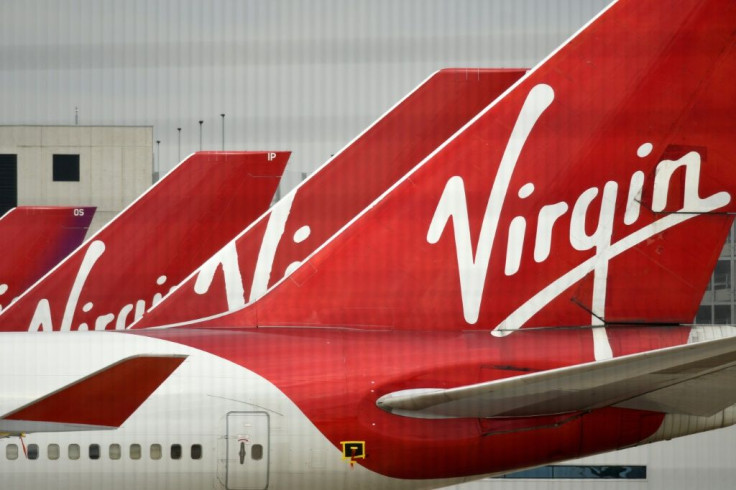Virgin Atlantic Secures $1.5 Billion Rescue Deal As Carrier Prepares To Restart Flights Next Week

KEY POINTS
- Richard Branson’s Virgin Group will invest £200 million ($250 million) in the airline
- Hedge fund Davidson Kempner Capital Management LP will provide £170 million ($213 million) in secured loans
- The rescue package must be approved by a court in order to gain approval from creditors
Virgin Atlantic Airways said on Tuesday that it has obtained a funding package valued at about $1.5 billion that will permit the troubled carrier to avoid bankruptcy during the covid-19 pandemic.
Richard Branson’s Virgin Group (parent of Virgin Atlantic) will invest £200 million ($250 million) in the U.K.-based airline, while New York-based hedge fund Davidson Kempner Capital Management LP will provide £170 million ($213 million) in secured loans.
The rescue package will also include £400 million ($502 million) of fee deferrals from shareholders, Virgin Group and Delta Air Lines (DAL), while creditors have agreed to postpone payments worth another £450 million ($565 million).
Under terms of the deal, Virgin Group will keep its 51% controlling stake in the airline, while Delta Air Lines will retain the remaining 49%.
The rescue package must also be approved by a court in order to gain approval from all important creditors.
Unlike some of its peers on the European continent, Virgin Atlantic could not secure a bailout from its own government in the U.K., forcing it to spend months negotiating with shareholders and private investors. (In April, the British government rejected a £500 million [$628 million] bailout request from the airline.)
In the second quarter, Virgin Atlantic reduced its flights by 98% and cut 3,550 workers.
“Undoubtedly, the last six months have been the toughest we have faced in our 36-year history,” said Shai Weiss, Virgin Atlantic’s chief executive.
Weiss told the Financial Times that the rescue deal was a “major achievement” that most people “probably thought . . . impossible ” .
“We’re planning for forever,” he said. “This is not a plan for another plan . . . our job has been to take a very severe look into 2021 specifically. We funded the plan for the worst case rather than best case as you would expect us to do.”
Virgin Atlantic said it expects capacity to be cut by 60% in the second half of this year and that normal business will not return before 2023.
The carrier plans to restart passenger flights next Monday.
Weiss said he hope carrier will return to profitability in 2022.
“We must and will become a sustainably profitable enterprise,” he said. “We haven’t done this on a prayer and a hope. I think people can get comfortable with the fact that this [rescue deal] has been reviewed by so many people. There was competition to lend us money.”
Theo Leggett, BBC business correspondent, expressed doubt that this rescue deal will save the airline.
“Will it be enough to secure the company's long-term future?,” he pondered. “There is some new money here… but a large part of the package is made up of deferring or waiving existing liabilities. This was probably the best the company could do in the circumstances… But it doesn't seem to give the company much of a war chest to absorb future shocks. It is due to resume flights next week - and managers will be desperate for demand to pick up, and quickly.”
Leggett added: “This deal does at least keep the airline flying, but navigating its way through the stormy skies facing the industry for the foreseeable future will still be a huge challenge.”
© Copyright IBTimes 2025. All rights reserved.





















